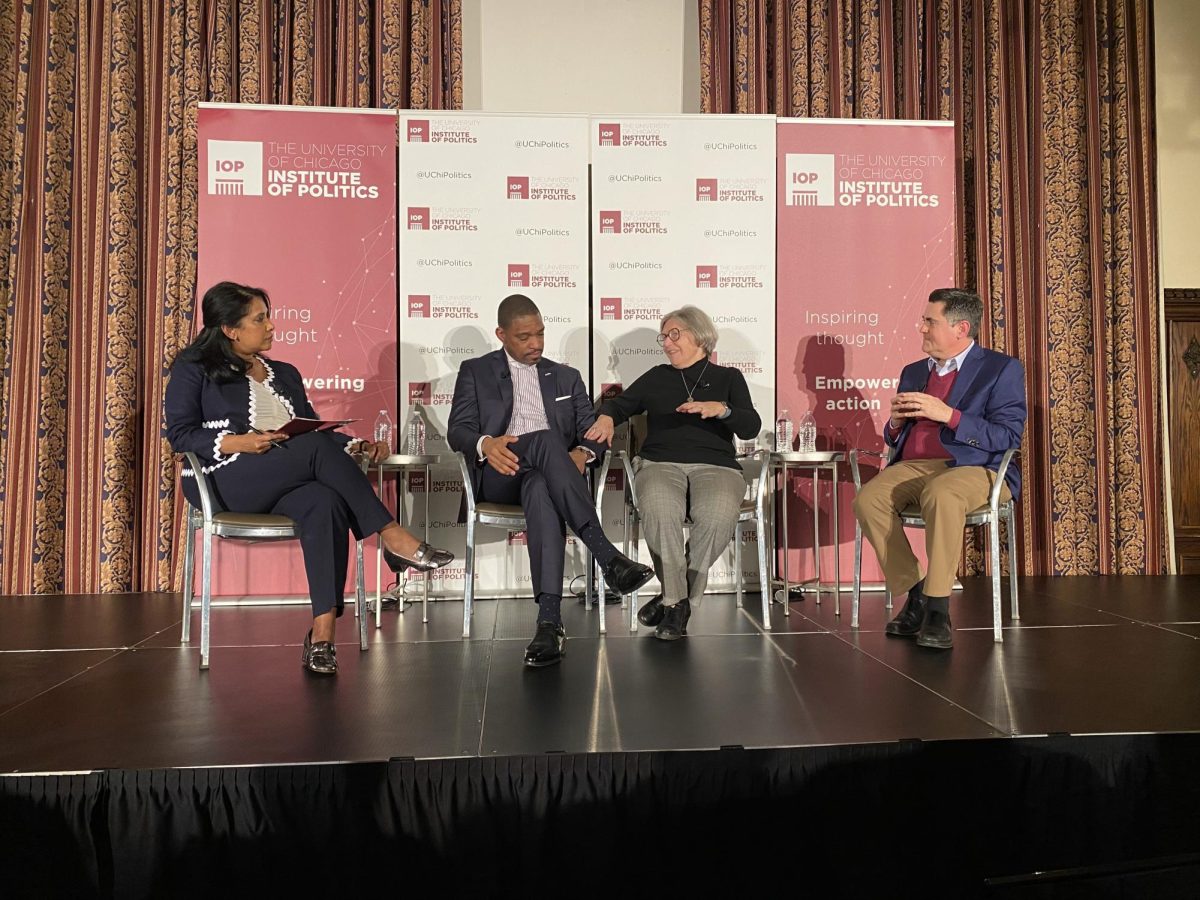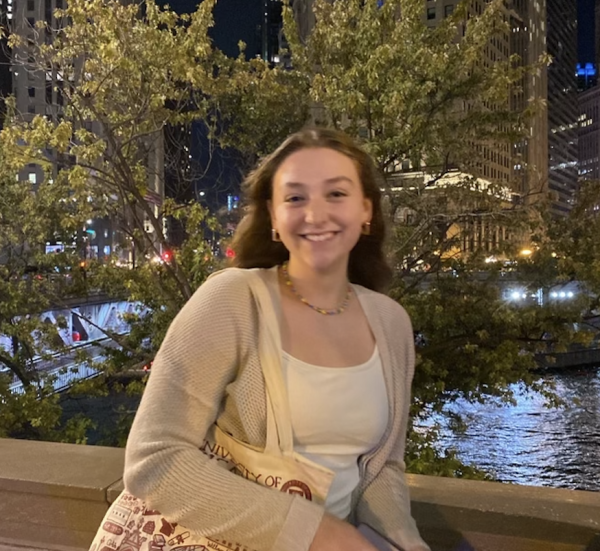Former Institute of Politics (IOP) Pritzker Fellow Russell Moore, current IOP Pritzker Fellow Sister Simone Campbell, and Reverend Starsky Wilson of the Children’s Defense Fund gathered for a panel on the role of Christian faith leaders in the upcoming 2024 presidential election and ongoing social and political movements. Part of the IOP’s Speaker series, the event was moderated by IOP Executive Director Zeenat Rahman at Ida Noyes Hall on February 8.
Rahman opened the conversation by asking what it meant for each panelist to be Christian and how their religious identities inform their policy work.
Campbell is a member of the Sisters of Social Service, an international Catholic religious congregation that advocates for peace and justice. She shared that her commitment to social justice work stems from her faith.
“I always knew that Jesus and justice went together,” Campbell said. “My hunger was to do justice and to do it now… [The Sisters of Social Service] have always known that faith has political consequences. Our work for those who are too often left out of the economic models really comes from our commitment to our faith.”
Moore, who is an evangelical Christian, believes his identity has been wrongfully corrupted by a small group of people who misrepresent the tenets of the religion. He expressed his view that associating political identity with a complete loss of power is an inaccurate understanding of human nature.
“There has been a kind of catastrophism in which political identity becomes ‘if those people, whoever they are, get control, everything is lost,’” Moore said. “I believe that’s a distorted view of what it means to be human, and it’s an impossible view for somebody who really believes in God.”
Rahman pressed further on this idea of catastrophism and why it has become so ubiquitous in the discussion of the intersection of politics and religion. Campbell jumped in to emphasize the importance her faith places on community and on relying on others to support someone through difficult times.
“The challenge, I think, is in the political realm,” Campbell said. “If you think of individualism, it’s easy to get scared. But if we’re in this together, if we have something that we can work on… the catastrophe is not present because the community will see us through.”
Looking forward to the upcoming 2024 presidential election, the panelists agreed that the race will likely be between sitting President Joe Biden and former President Donald Trump. Wilson sees an animation in young people that is already disrupting political ambitions on both sides.
For Biden and the Democratic Party, Wilson sees young peoples’ commitment to global peace in foreign conflicts as a cause for Biden’s falling polling numbers. For Trump and conservatives, young people are recognizing his exploitation of faith and of a political system that marginalizes people to discount their voices.
“Young people, I believe, were sent here to turn the world upside down, I have great hope in the fact that they are disrupting and disappointing what both of these candidates want, and it will cause both of them to have to turn to them, ask deeper questions, and shift their positions in the end,” Wilson said.
Campbell agreed and mentioned the necessity of curiosity and connection across differences to create explosive change.
“People are trying to find ways so that we move out of our polarized sides to talk about the human condition that we all care about and find ways forward,” Campbell said. “The critical piece is that capacity to break out of silos. We have got to find ways to talk to each other.”
Moore added that he believes people are wrongfully assuming that the 2024 presidential election will be a replay of the 2020 election. He pointed to the May 2023 civil case that found Trump liable for sexual abuse charges, and how it should have been “as shocking or even more shocking as Watergate, Vietnam, or any of the other national traumas we’ve had.”
“We’re in a situation now where we have a long national sleepwalking,” Moore said. “We simply have normalized all kinds of behavior, and that means we don’t actually know what 2024 holds.”
One of the biggest issues facing many religious institutions is a lack of participation and involvement in religious life by young people. Moore said he specifically targets this mindset when he speaks to young people and encourages them to keep fighting for their faith and what they believe in.
“There is a response from younger people in congregations in which there’s always the tendency to overreact to that last bad thing,” Moore said. “There are many evangelical young people who look at the politicization and weaponization of the religion in order to say that the answer is complete political disengagement altogether.”
Wilson’s religious community is beginning to focus more on the specific needs of the young people in his community to keep them engaged and provide them with the resources and opportunities they need.
“If you listen to young people talk about their lives and orient your ministry to them, they will be more responsive to you,” Wilson said. “It’s the same thing with public policy.”
Towards the end of the conversation, the panelists reflected on how their faith has evolved over the course of their lives and sustained them through difficult times.
Wilson, who grew up in a deeply Christian and conservative community in Dallas, Texas, says his commitment to engage with people deeply—including with young people who have “radicalized” him—has changed his religious trajectory in terms of what he preaches and how he understands it.
Campbell mentioned a retreat she once participated in that pushed her to care for the individual as a person rather than dislike them for their policy. Instead of pushing back against the people she disagrees with, she stands side-by-side and looks at the issue alongside them with reverence and compassion.
“As long as we’re faithful, we won’t be destroyed,” Campbell said.









